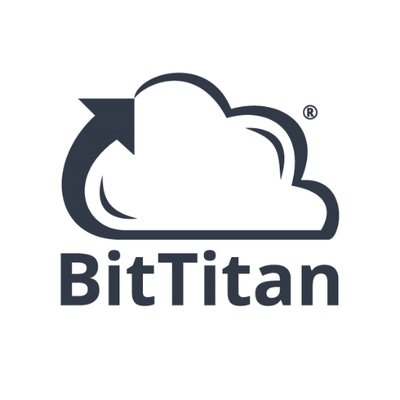Best PHP Frameworks to Use in 2023
In this article, we’ll review the best PHP frameworks to use in 2023. As part of that, we’ll look at what a PHP framework is, when you should consider using one, and what the main benefits of using a PHP framework are. We’ll also consider the best PHP framework for beginners, and the best frameworks for web development.
Contents
- What is a PHP Framework?
- When to Use a PHP Framework
- Reasons Not to Use a PHP Framework
- Top Benefits of PHP Frameworks
- Best PHP Frameworks to Use
- Best PHP Framework for Beginners
- Best PHP Frameworks for Web Development
- Conclusion
What is a PHP Framework?
Before we get into the benefits of using PHP frameworks and which are the best PHP frameworks to use, we need to first understand what a PHP framework is. PHP is the world’s most used server-side language, and PHP frameworks have been around for a long time and have taken different forms and paradigms throughout the years. They power anything from simple websites to big, complex web applications that manage millions of registrations and daily visits. PHP frameworks have been in use for decades now (Phplib, the first PHP framework, dates from pre-2000), and they’ve taken different forms, but their main purpose has stayed mostly the same. That purpose is: to help PHP developers by providing sets of commonly used functions, as well as libraries for common functionalities, and enforce to the use of the best coding practices. Think of a PHP framework as a skeleton that already provides a running system where you can embed your code without having to go through every detail from scratch. Need secure authentication? Already taken care of! Routing? Yes! Dependency injection? You bet! By using PHP frameworks, we can drastically reduce the amount of code we need to write and improve our efficiency, while also ensuring a high level of quality due to the usage of code standards and best practices. Exploring how a PHP framework functions is also a good way to add to your PHP learning as you grow your development skills.
When to Use a PHP Framework
Even though nowadays it can seem like almost a no-brainer for a PHP programmer to use a PHP framework in almost every project, there are many cases where using one might not be the best idea. It all depends on the project. Most of the time, the discussion centers around what framework to use, when a lot of time the discussion really should center around whether or not we should use one at all. To demystify this, let’s have a quick look at some of the pros and cons of using a PHP Framework.
Reasons Not to Use a PHP Framework
It may be odd to talk about the cons of a PHP framework in an article about the best PHP frameworks, but it’s important to understand when using a PHP framework might not be the best idea.
Slower execution: A PHP framework will always add complexity and overhead to your PHP scripts. You’ll always have to take into consideration that, before even running a simple script, a PHP framework will always load some number of classes and libraries before running it. So before choosing a PHP framework, take into consideration the needs of your application. Sometimes the best solution might be to just write some custom code at the lowest abstraction level that will be faster and less complex than using a framework.
General Solutions for specific problems: As we mentioned before, a framework provides a skeleton of libraries and functionality that’s ready to use and that should solve the most common problems a developer finds. However, as PHP’s creator Rasmus Lerdorf has said: Nobody has a general problem. Everyone has a very specific problem they’re trying to solve. And a general-purpose framework, while it can solve it, it usually solves it in a way that you get so many other things that you don’t need that ends up being done on every request. This is why, when we’re choosing a framework, we should be careful to understand if it solves our problem, and only after that should we check if it fits the rest of our needs.
Learning curve: Frameworks pull us towards good, structured code and best practices. But those take time and effort to learn and master. If someone picks up a framework without a solid knowledge of it and the concepts behind it, chances are, we’ll end up with a big mess instead of structured code.
Limited control: One thing we have to understand when we decide to use a PHP framework is that we’re introducing an external dependency. With this, we’re accepting that the people in charge of the framework might stop supporting it at any time, or move its development in a different direction. We also have to take into consideration the time needed to upgrade the framework to newer versions, and having to deal with all the code updates that upgrade might bring. The actual framework also introduces a new layer of abstraction into our code. While many parts of the framework are meant to be customized, the framework core is usually a black box that’s not meant to be touched. If we modify it, then we can’t count on getting any support, and all future updates will be impossible to do without a lot of rework.
These are some of the downsides of using a PHP framework. So, if we’re in a hurry or our project is small, it may be better to not use a framework. Instead, we should consider using a microframework (a framework where functionality is stripped to the bare minimum essentials), or even consider starting from scratch using some libraries we’re familiar with.
Top Benefits of PHP Frameworks
While there are some corner cases where using a PHP framework isn’t the best solution for a specific problem, there are also a lot of benefits to using one. Let’s take a closer look at the benefits.
Quicker development times: A well-selected PHP framework already contains implementations for the most common problems one has to solve built into it. And not only that, it usually provides a well-structured application architecture — Model-View-Controller (MVC) being the most common — to guide our development. This way, instead of spending time and effort planning an application architecture, evaluating the various libraries available, and implementing the architecture from the ground up, by using a framework we get a fully functional template and only have to focus on building the features specific to our project. Added to that, a lot of PHP frameworks also include command-line tools that help generate automatic code templates that can further speed development.
Tighter security: One of the biggest problems when developing PHP applications is security. Most developers aren’t equipped with all the tools or skills needed to create a secure PHP application. By using a PHP framework, we’re using solutions that are continuously tested, reviewed, and scrutinized by the PHP community. Because most of them are open source, security issues are usually quickly noticed and fixed.
Easier collaboration: As developers, we should know our solutions and implementations by heart. But when we work in a team, things change. Without knowledge of the design decisions and complete documentation of the codebase, team members will find it hard to use and sometimes to understand our application’s code. Using a PHP framework makes it easier for new developers to get started on the project. Even if they’re not already familiar with the framework, they’ll probably have access to complete documentation for it, together with multiple videos and tutorials on how to use it all around the Web. This way, developers can focus on developing features instead of constantly guiding new team members throughout the project.
Best PHP Frameworks to Use
The world of PHP frameworks has expanded rapidly over the last decade. Frameworks have come and gone, and in the last few years, we’ve seen some stabilization. With that, some frameworks have come up as the top choices for most projects. It’s difficult to look at the ever-growing list of PHP frameworks and choose the best five. Some will be better for specific cases, and some will have faster learning curves or better/worse community support. When creating a list like this, we’re looking at all those factors and picking the ones that perform…






















